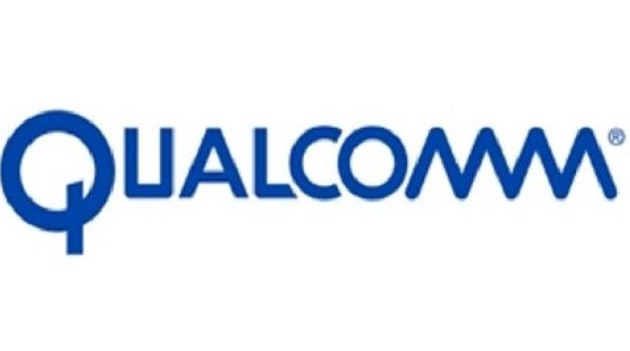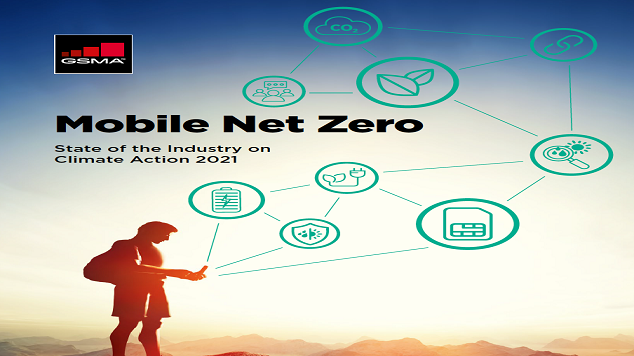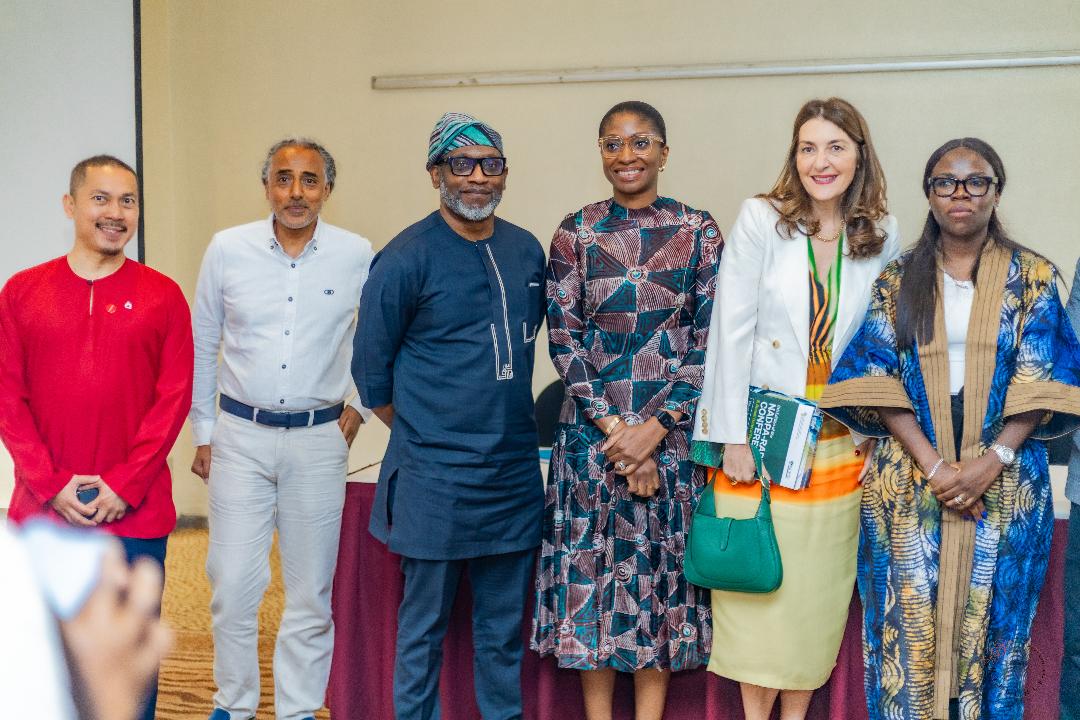Telecom
Qualcomm Shortlists Startups for Qualcomm Make in Africa 2024 and Awards 2023 Wireless Reach Social Impact Fund

Qualcomm Incorporated today announced the shortlisted startups for Qualcomm Make in Africa 2024, as well as the winner of the 2023 Wireless Reach Social Impact Fund.

The Qualcomm Africa Innovation Platform, now in its second year, aims to work with and support the development of Africa’s emerging technology ecosystem by providing mentorship, education, and training programs with a focus on 5G, Edge-AI/ML, Compute, and IoT. This year, Qualcomm received an overwhelming response, with approximately 250 applications from 30 countries.
Highlights:
- Startup cohort announced for 2024 Qualcomm Make in Africa startup incubation program featuring technologies.
- Announcement of the awardee of the 2023 Wireless Reach Social Impact Fund, supporting startups in scaling their societal and market impact.
- Development of L2Pro Africa website content nears completion, providing free online training on intellectual property protection.
As the first initiative of its kind in Africa, Qualcomm Make in Africa is an equity-free mentorship program that identifies promising early-stage startups keen on applying advanced connectivity and processing technologies such as 5G, Edge-AI/ML, Compute, and IoT to innovative end-to-end systems solutions, including hardware.
These startups have demonstrated exceptional potential in applying advanced connectivity and processing technologies to innovative end-to-end systems solutions.
The selected startups will receive free mentorship, business coaching, access to engineering consultation for product development, and guidance on protecting intellectual property. The 2024 cohort includes the following startups (listed in alphabetical order):
- Aurora Health from Kenya provides AI-based cardiovascular health care tools
- CropScan from Kenya uses solar-powered smart farming IoT devices
- Cure Bionics from Tunisia makes smart 3D printed prosthetic arms
- DevisionX from Egypt provides AI-based low-code computer vision tools
- Kalio from Cameroon is building AI tools for Agricultural IoT
- Kitovu from Nigeria provides tools and software for smart agricultural warehouse management
- NextAI Studios from Kenya builds AI-based emotion detection into toys for children’s mental healthcare
- RIM Nextgen from Kenya, uses smart tools for monitoring propane consumption
- Sparcx from South Africa uses AI for enhancing radar signal processing
- Vizmerald from Tunisia, is working on AI-based textile industry inspection
Qualcomm is also proud to announce the awardee of the 2023 Wireless Reach Social Impact Fund. This fund, provided by Qualcomm through its Qualcomm® Wireless Reach™ Initiative, aims to support startups in scaling their societal and market impact.
Ecorich Solutions Limited, a female-founded organization based in Nairobi, Kenya, will be awarded funding to help scale the impact of their smart organic food composter.
Wireless Reach funding will support Ecorich to address the dual challenge of organic waste management and the need for sustainable agricultural practices, with the goal of reducing environmental pollution, improving crop yields for farmers, and mitigating waste-related health risks for communities.
The other nine startups from the 2023 cohort will also receive valuable stipends to continue fueling their growth. These startups have showcased innovative uses of wireless technology to address pressing needs in their communities.
In addition, Qualcomm is excited to highlight the progress of the L2Pro Africa IP e-learning Platform, a free online training program designed to empower startups, SMEs, and researchers in Africa to protect, secure, and maximize their innovations. This program has been created in collaboration with Adams and Adams, Africa’s leading intellectual property (IP) law firm.
The education content has been updated with individual filing procedures for patents, industrial designs, and trademarks in the countries of Kenya, Nigeria, Uganda, Ghana, Rwanda and within the two African patent organizations, ARIPO and OAPI.
These step-by-step descriptions of per-country filing requirements empower inventors to interact effectively with IP professionals such as an IP attorney and their respective IP offices.
“I am thrilled with the overwhelming response to the Africa Innovation Platform this year,” said Alex Rogers, President, QTL & Global Affairs, Qualcomm Incorporated.
“The quality and diversity of the applications received reflect the immense talent and potential within Africa’s technology ecosystem.
“We are excited to work with the shortlisted startups and provide them with the necessary resources and support to drive innovation and create a positive impact in their communities.”
“We applaud Qualcomm for launching the second year of its Innovate in Africa Platform, which not only equips the upcoming generation of African entrepreneurs with expertise in pivotal areas like AI/ML, healthcare, agri-tech, smart cities, and communications but also empowers them to safeguard their intellectual property through the complimentary L2ProAfrica program.”, said John Omo, secretary general, African Telecommunications Union (ATU).
Mr. Omo also emphasized that the ATU remains steadfast in its commitment to fostering innovation and entrepreneurship across the continent. “Our youth innovation program, among other initiatives, plays a crucial role in cultivating the talents and aspirations of Africa’s young visionaries,” he affirmed. “We are ready to collaborate with additional partners to realize this objective.”
Telecom
Tarana, Microsoft Enhance Africa’s Broadband Connectivity

Tarana, provider of next-generation fixed wireless access (ngFWA) broadband technology, is collaborating with Microsoft to expand internet access in rural and underserved communities across Africa.

Together, the companies will help service providers in rural and underserved Africa deploy government-approved telecom equipment, along with training and technical support.
This comes as access to secure; affordable telecom equipment remains a major barrier to internet connectivity in Africa. Despite progress, high infrastructure costs and limited rural coverage have allowed the digital divide to persist.
Tarana stated that in some areas, fewer than 30% of people have dependable internet connectivity.
To that end, it said its collaboration with Microsoft will help reduce the cost of ngFWA equipment for African internet service providers while also assisting with deployment logistics, enabling them to give internet access more faster and more cost-effectively.
The company went on to say overcoming two primary limitations of traditional fixed wireless access) technology, ngFWA delivers high-speed broadband service in both non-line-of-sight conditions and heavy radio interference, making it an ideal solution for hard-to-reach and underserved markets.
More than 250 operators worldwide are deploying ngFWA to deliver better broadband more efficiently, said the company.
Basil Alwan, CEO of Tarana, added: “We look forward to making significant progress on the digital divide together.”
“Access to affordable, secure broadband infrastructure is essential for unlocking economic opportunity through digital access across Africa,” said Vickie Robinson, general manager, energy, connectivity, and sustainability at Microsoft. “By working with Tarana, we’re helping local operators overcome cost and deployment barriers so they can bring high-speed connectivity to the communities that need it most.”
Telecom
Mobile Industry Emissions Down 8%, But Pace Must Double to Hit Net Zero

The mobile industry’s operational emissions fell by 8% between 2019 and 2023, even as mobile connections grew by 9% and data traffic quadrupled, according to the GSMA’s fifth annual Mobile Net Zero report released this week.

The findings show the mobile industry has successfully started to decouple emissions from data and connectivity growth – a stark contrast to global emissions, which have increased 4% since 2019. However, to continue progress and reach net zero by 2050, emissions must fall by 7.5% annually until 2030 – more than twice the average annual rate achieved to date.
Key findings from the report include:
- Preliminary 2024 data suggests a further 4.5% drop in emissions – an acceleration on previous years, but still short of the 7.5% annual reduction needed to 2030.
- 37% of electricity used by operators disclosing to CDP came from renewables in 2023, up from 13% in 2019 – avoiding 16 million tonnes of emissions.
- 81 mobile operators (covering nearly half of global connections) have set or committed to science-based targets.
- The GSMA Climate Action Taskforce now includes 77 operators, covering 80% of mobile connections worldwide.
- Europe (-56%), North America (-44%), and Latin America (-36%) lead the way in operational emissions reductions between 2019 and 2023.
- New analysis of China shows operational emissions likely fell by 4% in 2024 – the first decline after a 7% rise between 2019–2023 – alongside a more than quadrupling of renewable energy use.
Global, collaborative climate action gathers pace
The acceleration in decarbonisation is driven by operator actions to improve network energy efficiency and transition to clean energy, including solar and battery storage. Many operators are phasing out less efficient legacy networks and reducing their reliance on diesel generators.
Some markets are seeing better renewable electricity access through policy support and market reform, but the GSMA warns that the accelerated reductions needed by 2030 will require greater access across more markets.
Regional momentum is building globally, with Europe and the Americas leading emissions reductions, while Asia and Africa show increasing engagement. China, representing the world’s largest mobile market with more than one billion 5G connections, shows promising progress in 2024.
New analysis published today to frame discussions at MWC25 Shanghai indicates China’s operational emissions declined for the first time in 2024, with preliminary data showing a 4% reduction year-on-year driven by a more than quadrupling in renewable energy use by operators. As the industry’s largest single market, China’s progress is instrumental in achieving global net zero targets.
Steven Moore, Head of Climate Action at the GSMA comments: “Our findings show the mobile industry isn’t greenwashing or greenwishing – it’s green acting. Emissions are trending in the right direction, but the pace of progress must now double.
“This is a global effort, and it’s encouraging to see momentum building across every region – from Latin America to Europe and especially to China.
“But to sustain this progress, we need broader support: better access to renewables, more policy certainty, and stronger collaboration across the ecosystem. Supply chain emissions, which make up most of our industry’s footprint, must also be addressed – and climate transition plans will play an increasingly important role in navigating what comes next.”
Focus on Scope 3 and circularity sharpens
The report emphasises that Scope 3 emissions – mostly from supply chains and manufacturing – account for more than two-thirds of the industry’s total carbon footprint and require attention. While transparency is improving, Scope 3 emissions remain a blind spot compared with operational emissions (Scopes 1 and 2), making them a critical challenge for operators with science-based targets, which require reductions across full value chain emissions.
Additionally, the report points to growing momentum around circular economy initiatives. Consumer appetite for sustainable devices is rising, with around 90% of users surveyed by GSMA saying they value longevity and repairability, and nearly half considering refurbished for their next phone purchase.
Buying refurbished instead of new can save consumers money and reduce environmental impacts from manufacturing, with refurbished phones generating 80-90% fewer emissions than new ones. While new device sales have slowed in recent years, the second-hand device market is growing rapidly, and projected to be worth $150 billion by 2027.
Many leading operators are now developing climate transition plans to assess climate risks and map out credible, long-term strategies toward net zero. These plans are expected to become a key focus of the GSMA’s Climate Action Programme over the coming year.
Telecom
MTN’s Ikenna Ikeme Urges Responsible AI Use @Pan African Data Policy Conference

The use of local content in Artificial Intelligence systems is essential for delivering accurate, region-specific results, according to MTN Nigeria’s General Manager for Regulatory Affairs, Ikenna Ikeme.

He shared this perspective at the recently held Network of African Data Protection Authorities (NADPA) Conference, held in Abuja recently.
The conference convened industry leaders, policymakers, and experts to discuss the role of data and AI in shaping Africa’s future. Key discussions focused on balancing innovation with risk, safeguarding data in AI systems, promoting responsible data use, and enabling cross-border data flows.
During a panel on “Data Governance for Responsible and Beneficial Use of AI,” Ikeme highlighted data’s dual nature. “Data can be transformational by bringing efficiency to businesses, but it also presents risks, ranging from privacy to investment,” he stated. He warned against relying too much on external data.
Adewale Adene, Google’s Government Affairs and Public Policy Manager, also spoke at the session. Adene projected AI and data governance could add $30 trillion to Africa’s economy by 2030. “All relevant authorities and stakeholders must ensure Africa is positioned to capitalise on this new economy,” he urged.
Other panelists included Nonye Ujam, Government Affairs Lead at Microsoft; Ololade Shyllon, Director of Privacy Policy for Africa, the Middle East, and Turkey at Meta; Oliver Patel, Head of Enterprise AI Governance at AstraZeneca (who joined remotely); Femi Daniel, Senior Counsel, Privacy and Data Protection at Mastercard; and Adewolu Adene, Government Affairs and Public Policy Manager at Google.
The conference stressed the urgent need for African stakeholders to create strategic policies. These policies should support both growth and safety.
Participants called for collaboration, investment in local data infrastructure, and strong legal frameworks. This is to ensure AI technologies are developed and used responsibly.
The NADPA Conference served as a timely call to action. It urged governments, companies, and regulators to prioritise trust and transparency. Homegrown solutions are key in shaping Africa’s digital destiny, the conference concluded.

 Telecom3 days ago
Telecom3 days agoALTON Clarifies on Migration to End-User Billing for USSD Services

 E-Financial3 days ago
E-Financial3 days agoNigerian Stock Market Suffers ₦183 Billion Loss Amid Profit-Taking

 News3 days ago
News3 days agoDStv Rewards Loyal Customers with Free Package Upgrades

 Telecom3 days ago
Telecom3 days agoLagos Future Conference 2025: Stakeholders Call for Digital Responsibility and Grassroots Innovation

 General News3 days ago
General News3 days agoAfrican Parliamentarians Seek Answers from Telcos on Quality of Service

 News2 days ago
News2 days agoLasaco Assurance to Invest in Technologies, Systems to Deliver Value to Clients

 E-Financial3 days ago
E-Financial3 days agoSEC Working on Stablecoin Regulation Framework

 News3 days ago
News3 days agoFCCPC Orders Air Peace to Appear Over Alleged Refund Violations




























